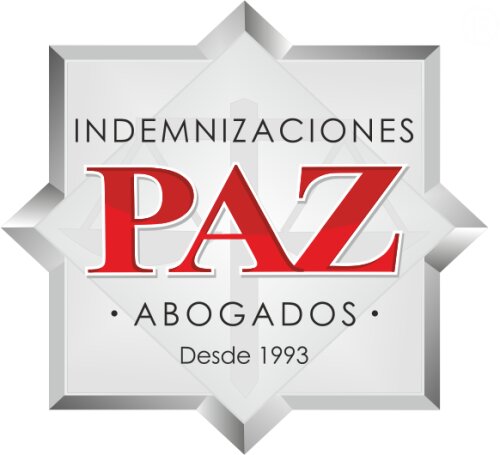Best Accounting & Auditing Lawyers in Pasto
Share your needs with us, get contacted by law firms.
Free. Takes 2 min.
List of the best lawyers in Pasto, Colombia
About Accounting & Auditing Law in Pasto, Colombia
Accounting and auditing are fundamental practices for businesses and individuals alike in Pasto, Colombia. The city, as the capital of Nariño Department, follows national Colombian accounting standards, as well as international standards where applicable. These regulations ensure transparency, financial accountability, and legal compliance across various economic sectors. Accounting law governs how financial transactions must be recorded, processed, and reported, while auditing law regulates the independent examination of financial statements and records. Legal professionals and certified public accountants often provide guidance to help navigate these complex regulations.
Why You May Need a Lawyer
Seeking legal assistance in matters of accounting and auditing can be crucial in several scenarios. Businesses and individuals might require a lawyer when faced with tax disputes, audits by government authorities, business mergers or acquisitions, allegations of financial fraud, or compliance requirements under Colombian financial law. A lawyer can help clarify tax obligations, resolve conflicts with the Dirección de Impuestos y Aduanas Nacionales (DIAN), draft accounting policies, and represent clients in administrative or criminal proceedings. Legal counsel is also important for startups or companies needing advice about transparent financial recordkeeping or internal control systems.
Local Laws Overview
In Pasto, accounting and auditing practices are governed primarily by Colombian national law. The most relevant regulations include the Colombian Tax Code (Estatuto Tributario), Commercial Code, and International Financial Reporting Standards (IFRS) as adopted in Colombia. Key requirements include maintaining accurate financial documents, submitting annual financial statements to relevant authorities, and conducting regular audits for certain business structures. The DIAN oversees tax compliance, while the Junta Central de Contadores supervises the conduct of public accountants. Non-compliance can lead to significant penalties, criminal charges, or administrative actions. It is important for companies and individuals to stay updated on any new reforms or requirements affecting reporting and auditing duties.
Frequently Asked Questions
What are the basic accounting obligations for businesses in Pasto, Colombia?
Businesses must keep organized accounting records, issue proper invoices, and maintain supporting documentation. Annual financial statements must be prepared and, in some cases, submitted to authorities or officially registered.
Are all companies in Pasto required to have their financial statements audited?
Not all companies require audits. Generally, larger companies or those listed as "sociedades por acciones" may be obligated to conduct external audits. Certain thresholds relating to revenue or assets also trigger audit requirements.
Who regulates accounting professionals in Pasto?
The Junta Central de Contadores is the principal regulatory body overseeing the registration, licensing, and conduct of certified public accountants in Colombia, including Pasto.
What happens if a business fails to comply with accounting laws?
Non-compliance can result in fines, penalties from DIAN, legal proceedings, or temporary closure of business operations. Serious violations can attract criminal charges such as fraud or tax evasion.
Can a lawyer help during a tax audit?
Yes, a lawyer can provide valuable support by reviewing documents before submission, representing the client during proceedings with DIAN, and negotiating settlements or appeals when needed.
How can individuals resolve tax disputes in Pasto?
Tax disputes are usually resolved by presenting evidence to DIAN or appealing to the administrative courts. Legal assistance is recommended to ensure proper defense and protect financial interests.
What types of audits are common in Pasto?
Financial audits, tax audits, and internal control audits are the most common. Each type serves different objectives, like verifying financial accuracy, ensuring tax compliance, or improving internal processes.
Are there international standards relevant in Pasto?
Yes, Colombia has adopted IFRS for financial reporting, particularly for large and listed companies. These standards influence local accounting and auditing practices.
How long should accounting records be kept?
Colombian law generally requires accounting records to be preserved for at least 10 years. This applies to invoices, ledgers, and supporting documents.
When should someone seek legal advice for accounting matters?
Legal advice is recommended when starting a business, facing audits, managing mergers or sales, handling potential disputes, or if there are allegations of non-compliance or fraud.
Additional Resources
- Dirección de Impuestos y Aduanas Nacionales (DIAN) for tax regulations and compliance. - Junta Central de Contadores for licensing and ethical conduct of accountants. - Superintendencia de Sociedades for business regulatory advice and oversight. - Local chambers of commerce in Pasto for additional compliance support, guidance on business registration, and networking with certified accountants. - Colombian Institute of Tax Law for research and continuing education on accounting and auditing law.
Next Steps
If you require legal assistance related to accounting or auditing in Pasto, the first step is to gather all relevant financial documents, including statements, invoices, and correspondence with authorities. Seek a consultation with a lawyer experienced in Colombian accounting and auditing law. Be prepared to discuss your business structure, specific challenges, and any notices or communications from regulatory bodies. A qualified legal professional can offer tailored advice, represent your interests during audits or disputes, and help implement effective compliance strategies to protect your financial and legal standing.
Lawzana helps you find the best lawyers and law firms in Pasto through a curated and pre-screened list of qualified legal professionals. Our platform offers rankings and detailed profiles of attorneys and law firms, allowing you to compare based on practice areas, including Accounting & Auditing, experience, and client feedback.
Each profile includes a description of the firm's areas of practice, client reviews, team members and partners, year of establishment, spoken languages, office locations, contact information, social media presence, and any published articles or resources. Most firms on our platform speak English and are experienced in both local and international legal matters.
Get a quote from top-rated law firms in Pasto, Colombia — quickly, securely, and without unnecessary hassle.
Disclaimer:
The information provided on this page is for general informational purposes only and does not constitute legal advice. While we strive to ensure the accuracy and relevance of the content, legal information may change over time, and interpretations of the law can vary. You should always consult with a qualified legal professional for advice specific to your situation.
We disclaim all liability for actions taken or not taken based on the content of this page. If you believe any information is incorrect or outdated, please contact us, and we will review and update it where appropriate.









